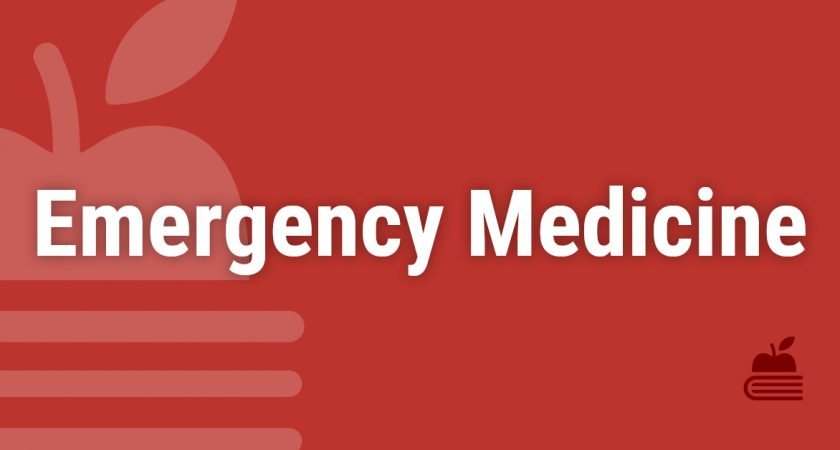Read week
Hi everyone!
How do you manage stress? Do your shoulders tighten up, does your heart start to pound? Do you struggle to keep your hands or body still? If so, it might be worth spending time practicing some meditation exercises so that if an emergency hits, you’ll have the tools to be able to keep your head clear.
This week is about Emergency Medicine.
Emergencies may be frequently encountered by our colleagues who work in rural centres with small hospitals, or rarely by those of us working in private practice in the city. Regardless, GPs must have at least a rudimentary knowledge of dealing with emergencies. An approach to studying for this week would be to look at the different emergencies that can occur in each body system – cardiology, respiratory etc. Presenting complaints are not included this week as they appear in the week associated with that system.
During this week, I would recommend taking the time to familarise yourself with the emergency facilities and procedures your practice has. Do they have an emergency trolley? Or a bag? Is there oxygen? Is there an AED? Where are these things kept? Is do the nursing staff know the protocol for an emergency? Do you have an emergency alarm button under your desk to call for help? Do you know how to draw up drugs? Can you remember how to insert a cannula?
In the case of an emergency, don’t be frightened to call for help soon. Use assertive language to communicate that you need urgent assistance from your colleagues. Organise for well patients to return to the waiting room and notify the administration staff so that they will be able to explain to patients if there are concerns. Draw at least one nurse and one other staff member into the room with you to commence the tasks needed to manage the emergency. If an ambulance is required, then this call should occur while in the consultation room with the patient so that all of the phone operator’s questions can be answered and an ambulance can be sent with the correct level of urgency. A simple error that can occur is to ask people at the front desk to call for the ambulance – this is wrong as they usually know no clinical information and can not communicate the level of emergency to the phone operator.
Look after yourself, and remember that you have colleagues around you for help if you need it.
Dr Andrew Harris
Director of Amadeus Education.
Did you know?
According to BEACH data, emergency medicine is not specifically listed in their reasons for encounter data. However, presentations for chest pain were 0.5% of the total reasons for encounter, and trauma/injury was also 0.5%. Consider this as you are preparing for your exams. (Source: General practice activity in Australia: 2015-16. https://bit.ly/2c4d8Em)
Common conditions:
These are the common conditions that should be reviewed for this topic:
Topics | Important reading |
Respiratory emergencies – asthma attack, status asthmaticus, croup, epiglottitis, infective exacerbation of COPD, Anaphylaxis, PE |
|
Cardiology emergencies – Acute coronary syndrome, acute heart failure, tachyarrhythmias, bradyarrhythmias, VTE |
|
Gastroenterological emergencies – Acute abdomen, appendicitis, PR bleeds, |
|
Musculoskeletal emergencies – Ankle sprain, fractures |
|
Endocrinology emergencies – hypoglycaemia, ketoacidosis |
|
Urological emergencies – kidney stones, paraphimosis, testicular torsion |
|
Neurological emergencies – Status epilepticus, Unconscious patient, headache, stroke |
|
ENT emergencies – dental emergencies |
|
Ophthalmological emergencies – acute angle closure glaucoma |
|
Dermatological emergencies – burns, spider bites, snake bites |
|
Oncological/haematological emergencies – febrile neutropenia |
|
Paediatric emergencies – meningococcal sepsis |
|
Mental health emergencies – opioid overdose, |
|
Medication doses:
These are the medications and doses that should be learned for the exam:
Condition | Medication |
Asthma severe attack |
|
Croup |
|
Anaphylaxis |
|
Tachyarrhythmias |
|
Bradyarrhythmias |
|
ACS |
|
Advanced life support |
|
APO |
|
Seizure |
|
Hypoglycaemia |
|
Opioid overdose |
|
Acute psychosis |
|
Mnemonics:
These are some important mnemonics relevant to this topic:
- ABCD2 score (TIA)
- Alvarado score (acute appendicitis)
- Canadian C-spine rule (spinal injury)
- CHADS2 score (atrial fibrillation stroke risk)
- CHA2DS2-VASc score (atrial fibrillation stroke risk)
- SMARTCOP (pneumonia severity)
- CURB-65 (pneumonia severity)
- Wells’ Criteria (pulmonary embolism, DVT)
- Ottawa ankle rule (ankle fracture)
- Ottawa knee rule (knee fracture)
- Alvarado score (acute appendicitis)
- DRSABCD
CHECKS:
Here are the list of recommended Checks that would be useful in your study for GP exams (accessed via subscription from http://gplearning.racgp.org.au):
- Emergency, May 2016
- Emergencies, September 2013
Focus on clinical skills:
Here is a brief focus on some OSCE preparation topics related to this topic:
- Managing any of the conditions above
- Advanced life support
- Counselling after:
- a head strike
- Heart attack
- Asthma exacerbation
- hypoglycaemia
Focus on medicolegal:
Here is a brief focus on the medicolegal issues covered in Australian Family Physician:Duty of care or a matter of conduct. AFP, October 2013. (https://bit.ly/2Cs6zEY)
Copyright © 2021 Andrew Harris

